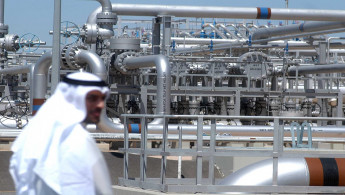Oil price slump costs producers $4.6bn a day
A slump in oil prices is costing producers $4.6 billion a day, according the thew International Energy Agency estimates of average global oil production of 92 million barrels a day.
The recent fall in the price fall, from $115 a barrel in June to $65 a barrel on Monday may cost oil producers up to
Observers do not think prices will rise in the near future, especially after OPEC’s decision last Thursday to keep the production ceiling at 30 million barrels a day, ignoring calls by producers to bring the ceiling down. This should reduce the supply of oil, which has exceeded demand in international markets.
| The decision to maintain OPEC’s production ceiling is intended to deprive shale oil producers of an opportunity to increase market share. |
This decision will affect OPEC member states in different ways. Saudi Arabia, the world’s largest producer, will not necessarily be affected, given its $740 billion in foreign exchange reserves, which exceeds the total hard currency reserves of all the other Arab states.
Fierce competition
Saudi Arabia pushed for OPEC to maintain the current production ceiling to deprive shale oil producers in North America of an opportunity to increase their market share.
Asian refineries have suspended imports of the light crude the US extracts from shale oil, only four months after those imports started, preferring instead the cheaper Middle Eastern crudes.
Further reductions could come in the future. The Kuwait Petroleum Corporation said Monday it had reduced the price of propane and butane to match the prices declared by Saudi Arabia. Propane would be sold for $550 a metric ton in December, $60 less than in November, while butane will sell at $570 a metric ton, $30 less than November's price.
A deeper slump?
| OPEC can afford $60 a barrel, but this would be uncompetitive for US shale oil producers. |
In a memorandum, analysts at ANZ said OPEC could afford a price of $60 a barrel, but this price would be uncompetitive for a large section of US shale oil production.
OPEC producers are playing a long-term game, betting that others would not do the same, ANZ said.
Brent's price of $67.82 a barrel is the lowest since October 2009. Meanwhile, US crude fell by $1.49 to $64.66 a barrel. On Monday it briefly fell to its lowest level since July 2009, $64.10.
The most affected
International reports indicate that the recent decline in the price of oil, if it continues for an extended period, could have a serious impact on the six member states of the Gulf Cooperation Council (GCC). Oil revenues represent some 46 percent of their gross domestic product.
Standard & Poor’s said the Sultanate of Oman and Bahrain would be the worst affected by the fall in oil prices because they did not enjoy strong financial positions and because both countries plan their budgets on the basis of oil prices being more than $100 a barrel, indicating they would run huge deficits.
Emerging countries outside OPEC seem to be the biggest losers. Brazil, for instance, has invested intensively in oil installations and infrastructure and it will be hard for it to recover its investment.
Russia also drew up its budget on the basis of $100 a barrel. The decline of oil prices could cost Moscow $100 billion. Added to that is the decline in the rouble, which fell 3.1 percent against the US dollar and 2.5 percent against the euro on the back of the fall of oil prices and weak results from the industrial sector in China.
In Venezuela, an OPEC member, the decline in prices will hit the economy hard as oil revenues provide 96 percent of its hard currency.
This is an edited translation from our Arabic edition.



